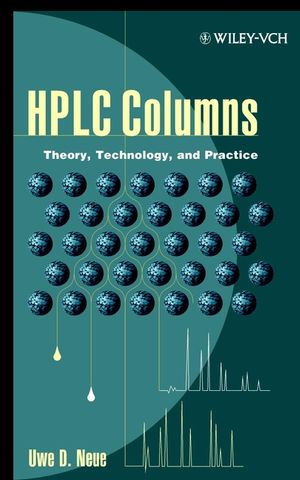HPLC Columns: Theory, Technology, and PracticeISBN: 978-0-471-19037-0
Hardcover
416 pages
July 1997
 This is a Print-on-Demand title. It will be printed specifically to fill your order. Please allow an additional 10-15 days delivery time. The book is not returnable.
|
||||||
An in-depth guide to HPLC column technology High-performance liquid
chromatography and its derivative techniques have become the
dominant analytical separation tools in the pharmaceutical,
chemical, and food industries; environmental laboratories; and
therapeutic drug monitoring. Although the column is the heart of
the HPLC instrument and essential to its success, until now, no
book has focused on the theory and practice of column technology.
HPLC Columns provides thorough, state-of-the-art coverage of HPLC
column technology for the practicing technician and academician
alike. Along with a comprehensive discussion of the chemical and
physical processes of the HPLC column, it includes fundamental
principles, separation mechanisms and available technologies,
column selection criteria, and special techniques. Special features
include:
* Comprehensive overview of state-of-the-art HPLC column technology
* Explanation of the underlying principles of HPLC columns
* Methods for selecting columns
* Practical advice on using and applying columns, including examples
* Section by M. Zoubair El Fallah on methods development
* Special techniques, including preparative chromatography, continuous chromatography, and the simulated moving bed
* Troubleshooting section
HPLC Columns helps laboratory practitioners make better choices in column selection, methods development, and troubleshooting: it is also an excellent textbook for graduate-level courses and HPLC short courses.
* Comprehensive overview of state-of-the-art HPLC column technology
* Explanation of the underlying principles of HPLC columns
* Methods for selecting columns
* Practical advice on using and applying columns, including examples
* Section by M. Zoubair El Fallah on methods development
* Special techniques, including preparative chromatography, continuous chromatography, and the simulated moving bed
* Troubleshooting section
HPLC Columns helps laboratory practitioners make better choices in column selection, methods development, and troubleshooting: it is also an excellent textbook for graduate-level courses and HPLC short courses.



